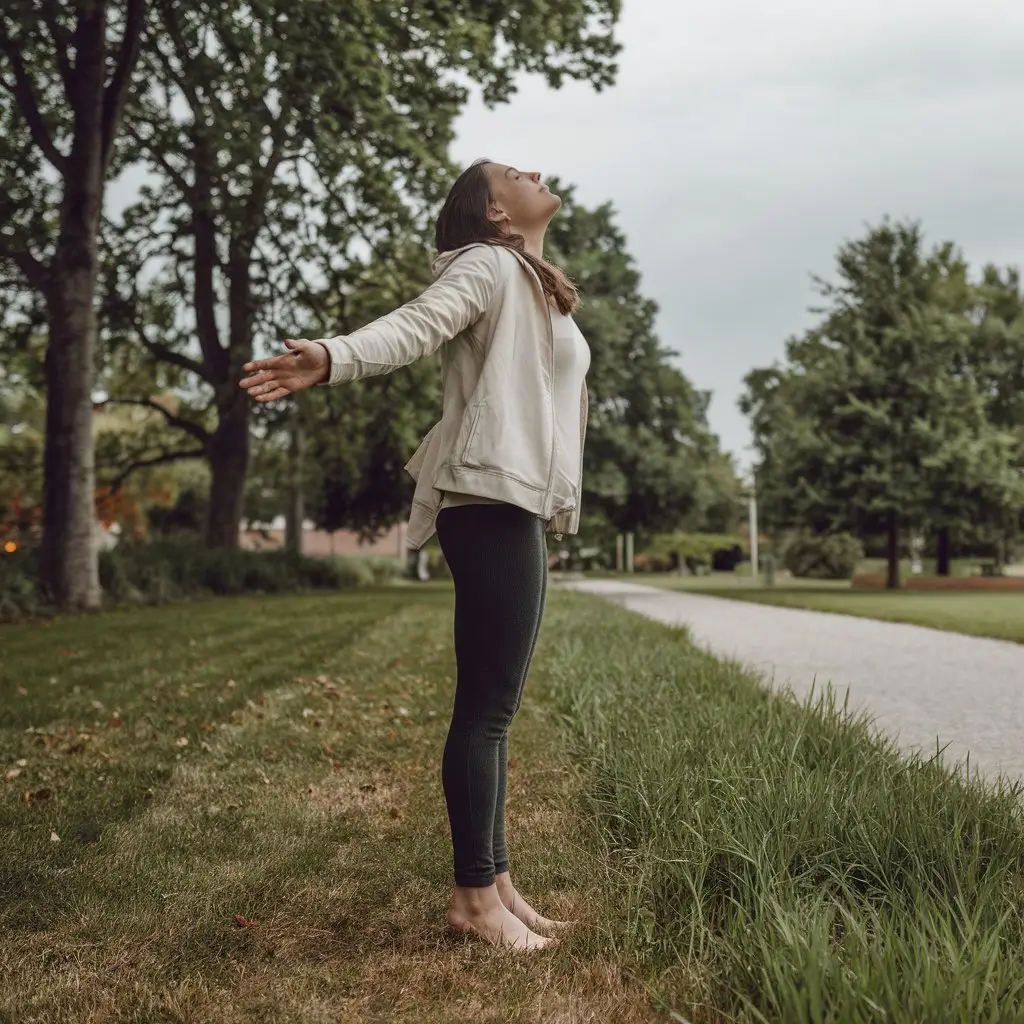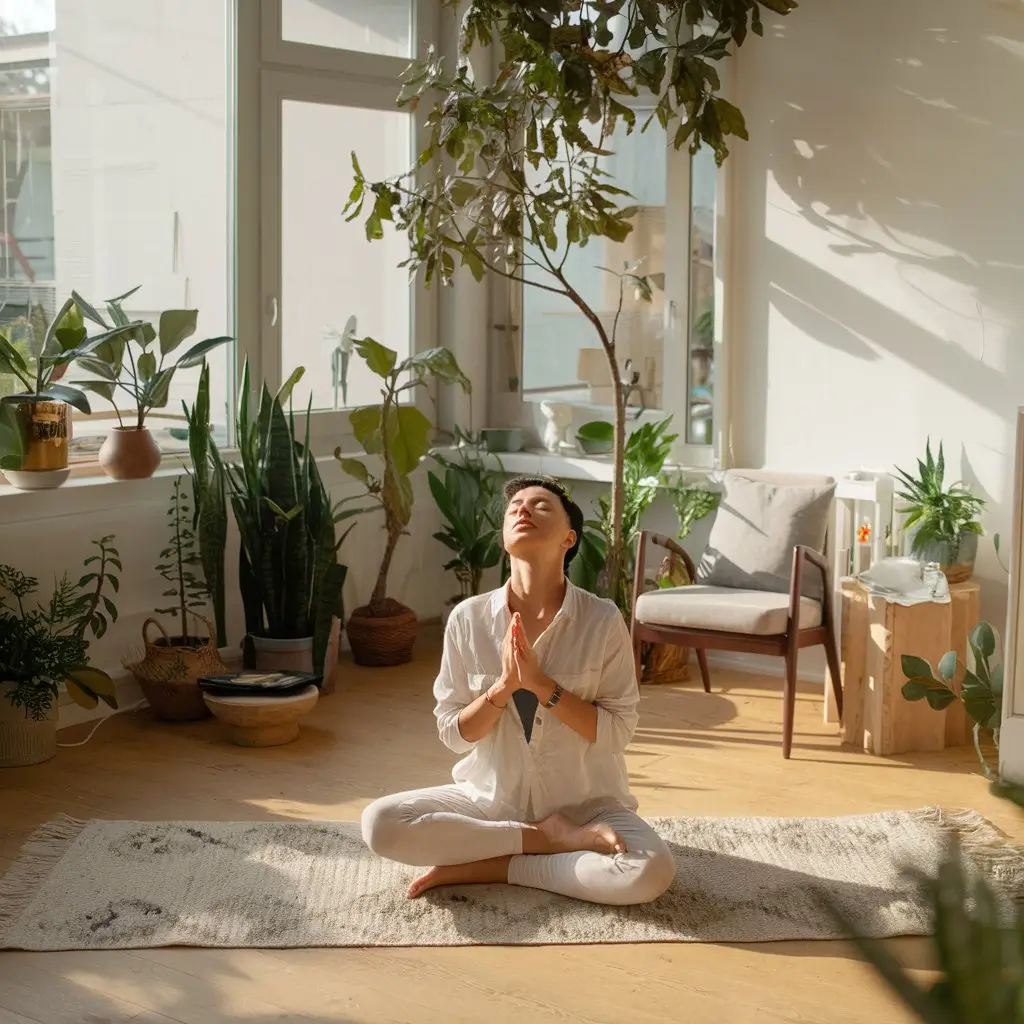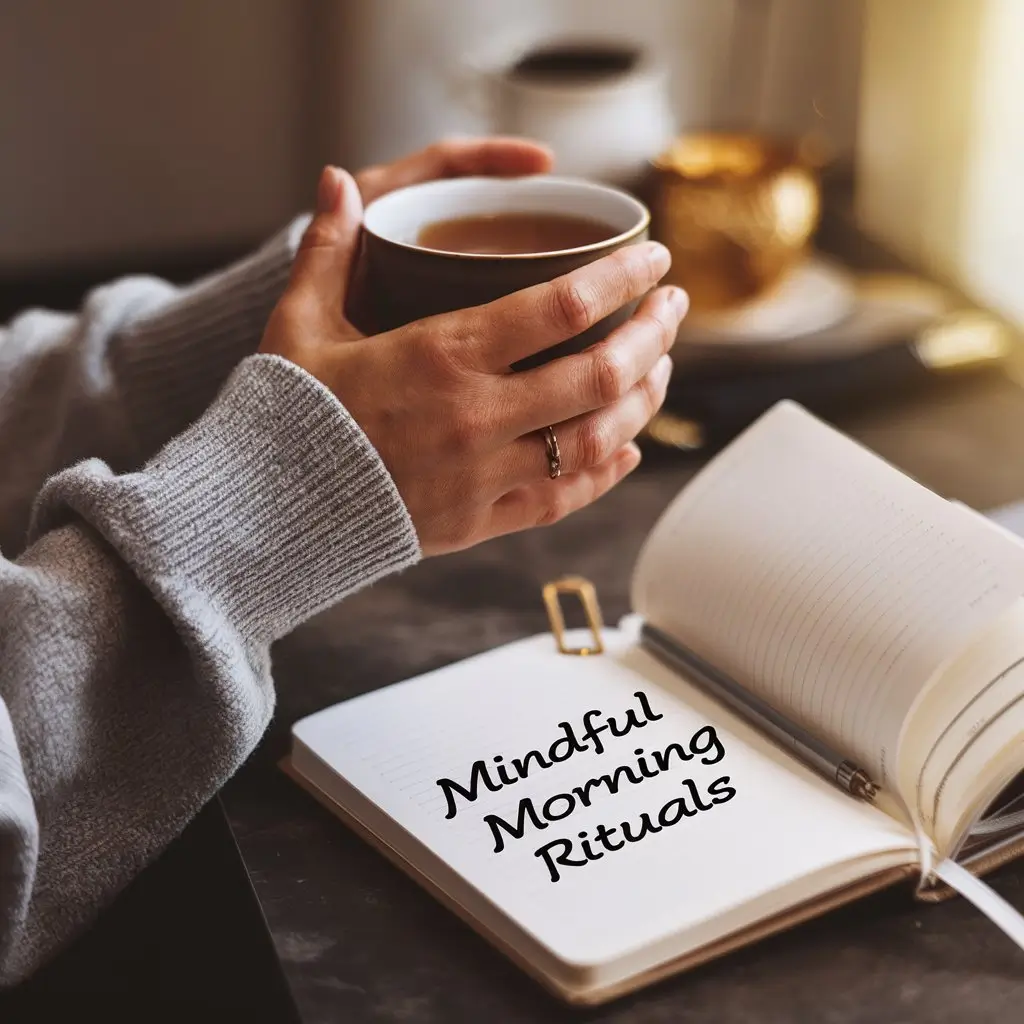In our fast-paced world, where stress and uncertainty often dominate our lives, the importance of mental stability cannot be overstated. Daily rituals and routines serve as anchors, providing structure and predictability amid chaos. This article explores how incorporating rituals into our daily lives can enhance mental well-being and foster a sense of grounding.
Understanding Mental Stability
Mental stability refers to a person’s ability to maintain emotional balance and cope with life’s challenges. It is crucial for overall well-being, influencing how we manage stress, interact with others, and make decisions. Factors such as anxiety, depression, and external stressors can disrupt mental stability. Establishing daily practices can be an effective way to counter these influences and support mental health.
The Science Behind Rituals and Routines
Psychological Benefits of Rituals
Rituals provide a sense of control and predictability, which can be particularly comforting in uncertain times. Engaging in structured activities can reduce stress and anxiety, allowing individuals to feel grounded. The repetition of these actions reinforces a sense of normalcy and stability.
Neuroscience of Habits and Routines
From a neurological perspective, routines and rituals trigger the brain’s reward system, releasing dopamine and creating feelings of pleasure and satisfaction. This positive reinforcement encourages the continuation of these practices, ultimately contributing to improved mental health.
Types of Daily Rituals
Daily rituals come in various forms, each serving a unique purpose in enhancing mental stability and overall well-being. Here are several types of rituals that individuals can incorporate into their daily lives:
Morning Rituals
People must establish morning rituals because these routines establish a positive atmosphere for the entire day. They establish a path from nighttime sleeping to daytime wakefulness through mental intent and clear thinking. Common morning rituals include:
- Meditation: Starting the day with meditation can clear the mind and promote mindfulness. Even a few minutes of deep breathing or guided meditation can reduce anxiety and enhance clarity.
- Exercise: Engaging in physical activity, whether it’s yoga, jogging, or a simple stretching routine, boosts endorphins and energizes the body, fostering a positive mindset.
- Gratitude Journaling: Taking a moment to jot down three things one is grateful for can shift focus from negative thoughts to positive reflections, improving overall mood and outlook.
- Healthy Breakfast: Preparing and enjoying a nutritious breakfast can serve as a mindful practice, fueling the body and mind for the day ahead.

Mindful Eating Practices
Ritualizing meals can transform dining into a meditative experience. Mindful eating involves being fully present during meals, which can enhance appreciation for food and foster healthier eating habits. Key aspects include:
- Savoring Each Bite: Taking time to chew slowly and appreciate flavors and textures can create a deeper connection to food and promote satisfaction.
- Setting the Table: Creating a pleasant dining environment, whether alone or with others, can enhance the experience. This might include setting the table nicely or dimming the lights.
- Eliminating Distractions: Turning off screens and focusing solely on the meal can help individuals engage with their food and cultivate mindfulness.
- Expressing Gratitude: Taking a moment before meals to express gratitude—for the food, the preparation, and the company, can enhance the emotional experience of eating.
Evening Rituals
Evening routines provide essential steps toward relaxation before getting peaceful rest. They signal to the body that it’s time to relax and transition from the busyness of the day. Popular evening rituals include:
- Reading: Engaging in a good book can serve as a peaceful escape from daily stressors. Choosing uplifting or inspirational literature can promote relaxation.
- Reflecting on the Day: Setting aside time for reflection can help individuals process their experiences and emotions. This might involve journaling about what went well or what could be improved.
- Setting Intentions for Tomorrow: Preparing for the next day by outlining tasks and setting goals can reduce anxiety and create a sense of readiness for what lies ahead.
- Calming Activities: Incorporating calming rituals such as warm baths, listening to soothing music, or practicing gentle stretching can signal to the body that it’s time to wind down.
Weekly Rituals
Weekly rituals provide an opportunity for individuals to engage in restorative practices that foster connection and self-care. These rituals can help break the monotony of daily routines and rejuvenate the mind. Examples include:
- Being in natural settings through walks provides deep grounding experiences to many people. Whether it’s a hike, a stroll in the park, or gardening, being outdoors can reduce stress and enhance mood.
- Social Connections: Setting aside time to connect with friends or family can strengthen relationships and provide emotional support. This could be a regular dinner, a game night, or a simple phone call.
- Pursuing Hobbies: Engaging in creative activities, such as painting, writing, or crafting, fosters self-expression and relaxation. Dedicating time each week to a personal passion can enhance satisfaction and fulfillment.
- Self-Care Rituals: This could include spa days at home, practicing skincare routines, or dedicating time to hobbies that promote relaxation and joy. Setting aside this time emphasizes the importance of nurturing oneself.
Seasonal and Cultural Rituals
In addition to daily, weekly, and monthly practices, seasonal and cultural rituals can also play a significant role in mental well-being. Celebrating seasonal changes, holidays, or cultural traditions can foster a sense of belonging and joy. Examples include:
- Seasonal Celebrations: Engaging in activities that honor the changing seasons, such as planting in spring or harvesting in autumn, can create a deeper connection to nature.
- Cultural Festivals: Participating in cultural events or traditions reinforces community bonds and provides opportunities for shared experiences and support.
- Mindfulness in Rituals: Incorporating mindfulness into these rituals, whether through prayer, reflection, or communal activities, enhances their emotional significance and grounding effect.
Personalizing Rituals for Individual Needs
IPersonalizing rituals is crucial for maximizing their effectiveness and ensuring they resonate with individual lifestyles, preferences, and values. Here’s how to create rituals that are tailored to meet your unique needs:
Identifying Personal Values and Preferences
- Self-Reflection: Start by reflecting on what truly matters to you. Consider your values, interests, and the aspects of life that bring you joy. Journaling about these topics can provide clarity and guide the selection of rituals that align with your core beliefs.
- Understanding Triggers: Recognize situations or feelings that trigger stress or anxiety. By identifying these triggers, you can design rituals that specifically address them, providing a sense of control and comfort when faced with challenges.
- Assessing Current Routines: Take stock of your existing habits and routines. Identify which activities help you feel grounded and which contribute to stress. This assessment will help you determine what to keep, modify, or replace in your daily rituals.

Experimenting with Different Rituals
- Trying New Practices: Don’t hesitate to explore various rituals before settling on a routine. This could include different forms of meditation, types of exercise, or methods of journaling. Experimentation can lead to discovering what truly resonates with you.
- Incorporating Variety: Incorporate a mix of rituals to prevent monotony. For instance, if you enjoy morning meditation, try varying the style (guided, silent, or moving meditation) or the length of time spent. This adaptability keeps rituals fresh and engaging.
- Listening to Your Body and Mind: Pay attention to how different rituals make you feel. If a particular practice feels uplifting and energizing, it’s worth incorporating consistently. Conversely, if something feels forced or unfulfilling, it may be time to reassess its place in your routine.
Adapting Rituals to Fit Lifestyle Changes or Challenges
- Flexibility is Key: Life is dynamic, and routines may need to adapt to changes such as new job responsibilities, family commitments, or health issues. Be open to modifying your rituals to fit your current circumstances while maintaining their core purpose.
- Creating Shorter Versions: If time constraints arise, consider creating shorter versions of your rituals. For example, if you usually meditate for 20 minutes but find yourself pressed for time, a 5-minute breathing exercise can still provide grounding benefits.
- Integrating Rituals into Daily Activities: Look for opportunities to weave rituals into your existing routine. For instance, practicing mindfulness while commuting, enjoying a moment of gratitude during lunch breaks, or incorporating stretches during work hours can help maintain a sense of balance.
Seeking Inspiration and Support
- Community Engagement: Joining groups or communities that share similar interests can provide inspiration and motivation. Whether it’s a yoga class, a book club, or an online forum focused on mental wellness, sharing experiences can enhance your personal ritual journey.
- Learning from Others: Explore how others personalize their rituals by reading books, listening to podcasts, or watching videos on wellness practices. You might discover new ideas and approaches that resonate with you.
- Accountability Partners: Consider finding a friend or family member to share your ritual journey with. Having someone to support and encourage you can enhance commitment and provide motivation to stick with your practices.
Embracing the Journey
- Be Patient: Personalizing rituals is a journey that takes time and experimentation. Allow yourself the grace to evolve, and remember that it’s okay to adjust your practices as your needs change.
- Celebrate Small Wins: Acknowledge and celebrate the positive impacts that rituals have on your mental well-being, no matter how small. Recognizing these changes reinforces the value of your practices and encourages continued commitment.
- Focus on Enjoyment: Ultimately, rituals should bring joy and fulfillment to your life. If a particular practice feels like a chore, it may be time to reevaluate and find alternatives that resonate more deeply with you.
Overcoming Barriers to Establishing Rituals
Establishing daily practices can significantly enhance mental stability and well-being, but various barriers can prevent individuals from integrating these into their lives. Recognizing and addressing these challenges is essential for successfully adopting and maintaining these routines. Here are some common barriers and strategies to overcome them:
Common Challenges
- Time Constraints: One of the most significant barriers is the perception of a lack of time. Busy schedules filled with work, family obligations, and social commitments can leave little room for personal practices.
- Skepticism: Some individuals may doubt the effectiveness of these activities or view them as unnecessary, leading to reluctance in trying them. This skepticism can stem from a lack of understanding about how such practices contribute to mental well-being.
- Lack of Consistency: Even when individuals start incorporating new habits, maintaining consistency can be challenging. Life’s unpredictability can disrupt routines, leading to feelings of frustration or defeat.
- Overwhelm from Choice: The vast array of available practices can be overwhelming. Individuals may struggle to decide which to adopt or feel pressure to adhere to specific methods that don’t resonate with them.
- Fear of Commitment: The fear of committing to a new routine can prevent individuals from fully engaging in these activities. Concerns about whether they will stick with it or whether it will be beneficial can create hesitation.
Strategies for Integrating Practices into Daily Life
- Start Small: Begin by incorporating short, manageable activities into your day. For instance, instead of committing to a 30-minute meditation session, start with just 5 minutes. When you become confident handle the device extend your usage time.
- Prioritize Your Practices: Treat these activities as essential appointments in your day. Schedule specific times for them, just as you would for work meetings or social engagements. This prioritization emphasizes their importance and helps create a routine.
- Utilize Reminders: Setting reminders on your phone or using calendar alerts can help prompt you to engage in these activities. Visual cues, such as sticky notes or reminders on your workspace, can also serve as helpful nudges.
- Create a Dedicated Space: Designate a specific area in your home for your practices. This could be a cozy corner for reading, a meditation space, or a quiet spot for journaling. Having a dedicated space can make it easier to engage in your routines.
- Embrace Flexibility: Recognize that life can be unpredictable, and it’s okay to adapt your activities as needed. If you miss a day or need to modify your routine, approach it with kindness and understanding rather than self-judgment.
- Seek Support and Accountability: Sharing your goals with friends or family can create a sense of accountability. Consider finding a buddy to practice together, whether through virtual meetups or in-person sessions.
- Educate Yourself: Learning about the benefits of these practices can help combat skepticism. Read books, attend workshops, or listen to podcasts on mental health and wellness to deepen your understanding and motivation.
- Limit Choices: To avoid feeling overwhelmed, focus on a few key activities that resonate with you. Narrowing down your options allows you to commit fully to those without feeling pressured to try everything.
- It is essential to recognize and honor any achievements regardless of their magnitude. Recognizing the positive impact of these practices can reinforce their value and motivate you to continue.
Mindset Shifts
- Adopt a Growth Mindset: Embrace the idea that establishing new habits is a learning process. Understand that it’s normal to face challenges and that each attempt is an opportunity for growth and discovery.
- Reframe Failures: Instead of viewing setbacks as failures, see them as valuable lessons. Reflect on what worked and what didn’t, and use that insight to refine your approach.
- Focus on Enjoyment: Shift your perspective from seeing these activities as obligations to viewing them as opportunities for self-care and joy. People who enjoy their process during learning tend to maintain their dedication.
Conclusion
Incorporating daily rituals into our lives can significantly enhance mental stability and well-being. By exploring and adopting personal rituals, individuals can cultivate a sense of grounding and resilience. The transformative power of these practices offers a pathway to improved mental health, enabling us to navigate life’s challenges with greater ease and confidence.


3 thoughts on “Rituals Made Easy: Personalizing Your Path to Mental Health”